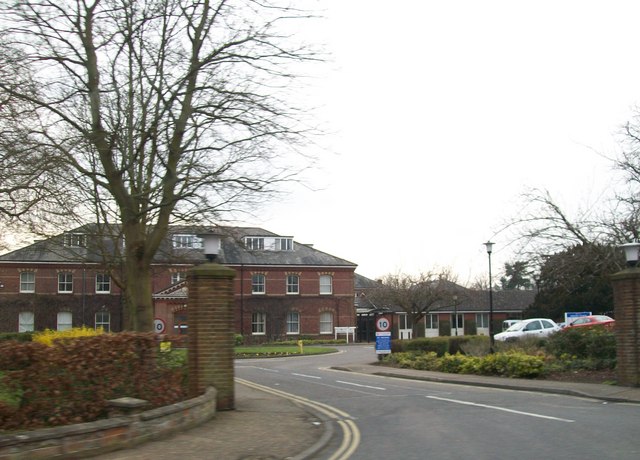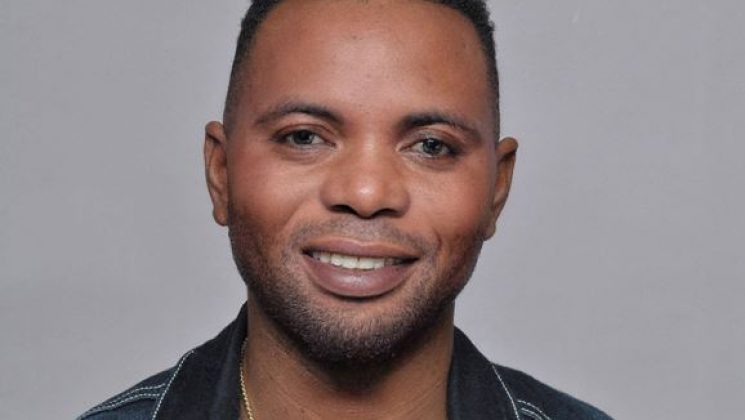John Kasensa is an assistant practitioner at Hellesdon Hospital in Norwich. In February he started his journey on the Nursing Degree Apprenticeship.
John came to the UK as a 22-year-old refugee from the Congo, settling in Norfolk. We talk to him about his background, his journey into working in mental health and his plans for the future.
How long have you been working at the Norfolk and Suffolk Foundation Trust?
For five years now. I was a clinical support worker for four years, then I did the assistant practitioner qualification, and have been working in that role now for a year.
How did you get into the clinical support worker role in the first place?
When I first settled in Norwich I found there was a language barrier so I went to college to learn English. I then volunteered for the British Red Cross doing first aid and started going to Carrow Road.
I enjoyed it and started thinking it was something I might want to take further. I met a friend who was here already who told me about healthcare agency work, but I didn’t know what sort of healthcare I would be able to do as I come from a background where mental health isn’t spoken about.
At first I thought it sounded like a scary job, but when I got into it I found that it was about helping people and it fit well with my first aid training.
I’ve seen the trauma – through war and other things – and seen people struggling with their mental health, so it was something new for me to learn, and the longer I stayed with the agency I realised that this was the career I wanted to try.
I joined the trust as a permanent clinical support worker in 2013. In 2015 the opportunity came up for me to study while I was employed. I knew I wanted to do something to further my career so I took the opportunity to get the assistant practitioner qualification.
After that I secured a job as an assistant practitioner, and then this year the opportunity to do the Nursing Degree Apprenticeship came up. There are 15 of us on the course and we are the trust’s first group.
What kind of hours do you do at university?
I’m at the university for 15 hours a week, then when I’m on placement I’m a student nurse, and when I’m at work I continue with my assistant practitioner role.
How are you getting on?
I am enjoying it. I never expected that I would go back to study again, or if I did go back to study I wouldn’t be able to work as well, unless I went back to the Open University, where I’ve studied before.
So when this opportunity came up I thought: “Wow, that’s an amazing career.” I really enjoy working with and helping other people and I think I feel that way because I always reflect on my own story.
Thankfully the trust recognised that and gave me the opportunity. I’m really excited and enjoying it and working hard.
The first placement was brilliant: I was working with dementia patients in Lowestoft, and dementia is something I’d never come across before.
The second placement is in the community, which is an incredible experience for me as my prior experience has been on wards. On wards you see people get discharged but you don’t know what happens afterwards, so now I know more about the referral system and how everything fits together.
Have your colleagues been supportive of you doing the apprenticeship?
Yes, I won’t deny that because any time I ask anything there are people there to give me guidance. I struggle with things like academic writing, because I come from a French-speaking country, but they help me to sound more academic, which I really appreciate.
Did you have any concerns about doing the apprenticeship, or have you had any problems with it?
So far no problems. Our tutors are very supportive and always there for us if we need to speak to them, which is very helpful.

Hellesdon Hospital, where John is an assistant practitioner. Photo © Jeremy Osborne (Creative Commons)
If a member of staff was thinking about doing the nursing apprenticeship next year what would you say to them?
I always tell my colleagues to go for it.
There are people in the trust who have worked here for many years, and may feel that it’s too late to do something new. I tell them that they still have time and they already have a lot of experience which is an advantage.
They might be thinking they’re working in healthcare and can’t afford to stop what they’re doing to go and study, so they might as well stay a support worker. I tell them that now the potential is there.
Our employer is telling you that if you want to do this we’ll pay you while you study and we’ll pay for your course. I tell people they will never get another opportunity like this one, so that’s why I’m encouraging everyone to take the opportunity.
What made you decide to become a UNISON member?
When I joined NHS professionals in 2012 one of my friends told me about UNISON, because I didn’t know what it was. My friend told me that UNISON would support me if I had any problems.
After I became a member I then learned more about the political side. I had incredible support from the branch over a particular issue and after that I decided to get more active within the branch. I became the branch international officer and a health and safety rep, so I have had training through UNISON and have attended meetings, conferences, international seminars, and even a trip to Cuba.
Do you think that being active in UNISON has helped you develop your skills as well?
Yes, definitely because when you go to different places such as conferences you meet so many people within healthcare who are facing different issues, and it’s good to see and understand what is happening in different regions, and how different trusts compare with each other.
What do you think you’ll want to do when you complete the apprenticeship?
When I finish, my focus is to work and help our services, so I’m not thinking too far ahead other than becoming a nurse and working in Norfolk.
In life sometimes you have to be thankful for an opportunity like this and to me I just feel really valued and I really appreciate it. If there were to be another opportunity after the degree, if I feel I’m capable of doing it then I’ll take it.
I would like to say thank you to the trust for giving me and other clinical support workers the opportunity to do this. Having the opportunity from my employer to do this is incredible.
If you are an apprentice in the health sector and you would like to share your experiences, please contact Emily Sole, regional learning and development organiser (e.sole@unison.co.uk).
To join UNISON – at the apprentice rate of £10 per year – call 0800 171 2193 or visit join.unison.org.uk.

